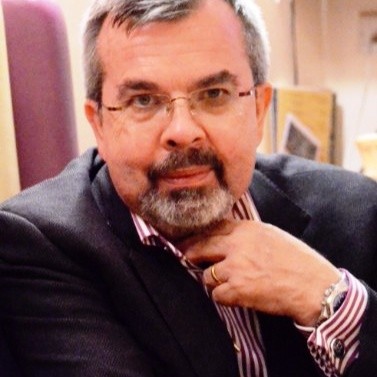On January 13th, 1989, a Friday, my 3rd son Alan was born.
He has Down Syndrome and Autism, he is 34 years old now.
I intended to follow my dreams and travel and work in multiple countries as my career developed — sadly, many countries where I worked would not accept Alan as a resident because of his disability — so my family lived in Ireland and I travelled.
As humans, we each have different abilities and what separates us from animals is how we support those in our society who cannot defend themselves.
Over the last 30 years, integrating diverse skill sets has become the norm. Diversity and Inclusion programs are still the first up against the wall when recession and headcount reduction occur.
Resistance to change is expected in every business. Motivating diverse global team members to adopt change enabled me to deliver productive technical solutions for my company. However, I only understood that behaviour engineering was the same as traditional engineering when I got an MSc in Organisation Behaviour in the early 1990s.
My family’s circumstances helped in that I could travel for short periods but could not be everywhere at once, managing teams in 10 countries. Hence, motivating the teams to internalise the desired productive behaviours was essential.
Behaviour engineering and product engineering are complementary from an outcome perspective — together are vastly more effective in driving productivity.
The same applies to quality programs such as Six Sigma, TQM, Lean, and BPR, where some practitioners see the program as an end in itself rather than a process to achieve a bottom-line business benefit.
I found toxic management was the main barrier to my teams’ productivity ambitions. Perhaps because we had to fight for our son’s rights, I discovered that I was good at eliminating toxic managers — to the extent that in some circles, I became known as “The Equaliser”.
Some companies credibly support diversity, equity, and inclusion strategies, while many do the minimum and take their lead from the legal obligations in each country — this is unacceptable. For example, in the UK, one of the shortest-lived PMs set her sights on eliminating DEI resources in the public service and healthcare, and those with intellectual disabilities are discriminated against concerning organ transplantation.
By combining bottom-line productivity gains using technology and human factor interventions to develop high-performance teams, I have never suffered from wishy-washy corporate commitment, as they never refused the additional millions of dollars added to the bottom line.
Equity is not the same as equality. Supporting those who need additional help to feel included and be productive does not just mean treating them equally in terms of gender, ethnicity, age, language, marital status, sexual orientation, or physical and intellectual disability — it means providing services tailored to the individual’s unique needs.
For example, in Ireland, my son has equal rights to all aspects of healthcare — better than in the UK. However, when he needed an operation recently to remove some teeth, the hospital provided an empty, quiet three-bedded room, ensured my wife and I stayed with him in the operating theatre until he was fully sedated, and brought us back to the recovery area to support him as he awoke — this was not the same as any other patient, but addressed his unique needs.
Supporting a diverse global team requires the same; every person requires support according to their needs. This sounds impossible, but it is easy when mutual trust and respect are established.
I have always used the following principles to achieve this:-
“I get paid to take the blame for your mistakes — you get credit for your achievements” — otherwise, change is associated with job loss rather than bottom-line profitability.
“Family comes first” — the long-term priority of family is more important than a short-term job emergency which can be addressed by the team and not just an individual.
“It’s just a job” — stress limits creative problem solving, and the results from team members fearful of failure are never ideal.
My Friday 13th moment changed my life forever, for the better, and made me what I am today.
Would your family, friends, and colleagues say the same about you?


